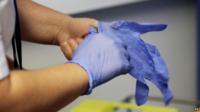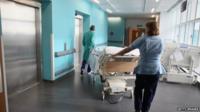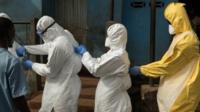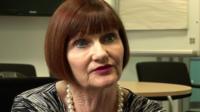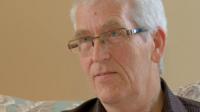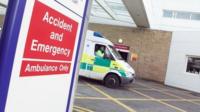
Divorcees are more likely to have a heart attack than their peers who stay married, US research suggests.
An analysis of 15,827 people showed women were worst affected, and barely reduced the risk if they remarried.
The study, published in the journal Circulation, argued that chronic stress, linked to divorce, had a long-term impact on the body.
The British Heart Foundation called for more research before divorce is classed as a major heart risk.
We already know that the death of a close loved one can greatly increase the risk of a heart attack.
Now a team at Duke University has shown a similar effect after divorce.
During the course of the study, between 1992 and 2010, roughly one in three people divorced at least once.
Women who divorced once were 24% more likely to have had a heart attack in the study than women who were continuously married. The figure was 77% for those having multiple divorces.
In men, there was a modest 10% extra risk for one divorce and 30% increase after multiple divorces.
One of the researchers Prof Linda George said: "This risk is comparable to that of high blood pressure or if you have diabetes, so it's right up there, it is pretty big."
When it came to remarriage, the risk was only marginally reduced for women while men bounced back.
"I think this is the most interesting bit in the paper," Prof George added.
She told the BBC News website: "We joke around here and call it the 'any-women-will-do orientation' for men.
"They're more comfortable being married than not married and cope with different women being their spouses.
"First marriages are protective for women and it's a little dicey after that."

The researchers found that changes in lifestyle, such as loss of income, could not explain the heightened risk.
Prof George told the BBC News website: "My educated speculation is that we know that psychological distress is a constant stress on the immune system, higher levels of inflammation and stress hormones increase.
"Immune function is altered for the worse and if that continues for many years it does take a physiological toll."
She argues the sex-difference is also found in depression and that divorce is a greater "psychological burden" for women although "we don't know exactly what's going on".
While tablets can reduce the risks caused by high blood pressure, there is no easy solution for the pain of divorce.
The researchers recommend close, supportive friends.
Prof Jeremy Pearson, from the British Heart Foundation, commented: "We have known for some time that our mental health can affect our heart health.
"This study suggests that divorce might increase a person's risk of a heart attack.
"But the results are not definitive so further evidence would be needed before divorce could be considered a significant risk factor for causing a heart attack."






